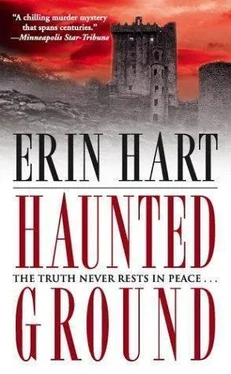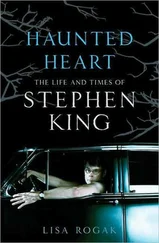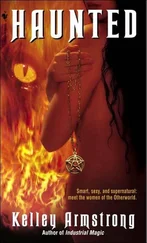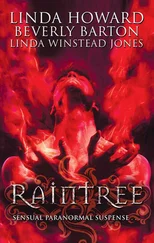“You’ll forgive me, Nora, but I have to ask—what’s all this about a head?” Robbie asked. “The academic world was abuzz today about you carrying around a severed head in a box.”
“I did no such thing. I took it straight to the lab.”
“God, you make me suddenly grateful I stuck with history,” Robbie said in mock disgust. “The worst thing I can dig up is a lurid eyewitness account, not an actual corpse.”
At that moment, Cormac came through the door, and Robbie tipped his head to make sure that his friend had noticed her presence as well. Nora could contain her news no longer: “Cormac, you’ll never guess what we found. There was something odd on one of the X rays. Right up against the molars on the left side of her jaw. It looks like a piece of metal. Hard to tell what, exactly. We’ll do an endoscopic exam in the morning.” She watched the furrow in his forehead deepen. Had he forgotten what he’d said in the lab this afternoon?
“So this head belongs to a she, then? Anyone we know?” Robbie said.
“Not a clue so far,” Cormac said. “Although Nora’s convinced me we ought to try and find out.”
“Well, especially now,” Nora said. “This piece of metal might be a clue. Robbie, what do you know about beheading?”
“A popular choice, I believe, ranking just after being hanged, drawn, and quartered in centuries past. Not a lot of women would have been beheaded, though. You’re sure it was an execution, not just a do-it-yourself murder?”
“That’s my best guess. It’s such a clean cut across the neck. You can see for yourself.” Nora pulled a folder of photographs from her bag and handed them to Robbie, who blanched slightly, but took the file. She was gratified to see his curiosity quickening when he laid eyes on the face of the red-haired girl.
“And no sign of a body?”
“None. Will you help us, Robbie? Find out about any women who might have been executed this way—and why.”
“What time period are we talking about?”
“That’s the trouble,” Nora said. “We don’t really know.”
“Probably only the last couple of thousand years,” Cormac said. Robbie looked back and forth, as if trying to decide which one was going to convince him.
“Sure, what the hell,” he said, handing the photos back to Nora. “It’s not like I’ve anything more interesting to be doing in the next few months.”
“Thanks, Robbie. You’re a dote.”
“Well, put it down to the fact that you’re just a bit more fetchin’ than he is.”
“Oh, I don’t know,” she said. “But whatever works.”
“We’d better get stuck in there if we’re going to, Robbie,” Cormac said. He turned to her. “Will you stay for a few tunes?”
She hesitated. “I was really only stopping by—”
“Ah, do, Nora,” Robbie said.
“At least let me get you a drink,” Cormac said. His serious dark eyes had a rather unnerving effect at this proximity, and just past his shoulder she could see Robbie silently urging: Go on.
“All right,” she said. “Thanks.”
Wading into the session, Cormac negotiated a spot for Nora to sit, on a bench near the window just beside Robbie, where she could be within the arc of the musicians’ circle. The evening’s repertoire consisted of reels, reels, and more reels, a pattern broken only occasionally by a jig or a horn-pipe. He was delighted that Nora had decided to stay for the music. As he played and felt a dozen pairs of feet thumping out the rhythm to the left and right of him, Cormac watched her body move slightly, almost involuntarily, to the same pulse. Toward the end of the evening, at a point where the tunes trailed off, and the musicians reached in unison for their pints, he saw Robbie look sideways at her.
“Would you ever give us a song, Dr. Gavin?”
Nora shrank back with a dismissive wave. “Ah no, I couldn’t. Play away there,” she said. Cormac hadn’t realized she was a singer. But reticence was the expected response to this first request; coaxing the shy singer was very much a part of the tradition. After a few more words of encouragement from Robbie and calls from the rest of the group, she finally yielded, took a quick drink of whiskey for courage, and leaned forward, clearing her throat and trying to find the right pitch. When she tipped her head up again, her eyes were closed.
The first time I saw my love, happy was I,
I knew not what love was, nor how to deny;
But I made too much freedom of my love’s company,
Saying my generous lover, you’re welcome to me.
Cormac was stunned by the dark, earthy voice that seemed to pour from Nora’s lips. Nervousness caused it to falter slightly, and he could see her eyes flicker under their lids, an intimacy that was almost too much to bear. He closed his eyes, and heard Nora’s uneasiness begin to subside as she relaxed. The song picked up strength and fervor like some powerful incantation, spinning a familiar, sad tale of faithless love and abandonment.
So fare thee well, darling, I now must away,
For I in this country no longer can stay;
But keep your mind easy, and keep your heart free,
Let no man be your sharer, my darling, but me.
Oh this poor pretty creature, she stood on the ground,
With her cheeks white as ivory, and the tears running down;
Crying Jamie, dearest Jamie, you’re the first that e’er wooed me,
And I’m sorry that I ever said, you’re welcome to me.
O happy is the girl that ne’er loved a man,
And easy can tie up a narrow waistband;
She is free from all sorrow and sad misery,
That never said, my lover, you’re welcome to me.
There was a brief silence when she finished, then a roar of approval from the gathered musicians, and even from some of the pub regulars who’d hissed one another into silence to hear the song. Cormac sat back in his chair and watched Nora open her eyes, looking as if she’d awakened from some dream to find a whole room full of people staring at her. She seemed astonished, and a little embarrassed, by all the admiring faces leaning in, the hands reaching in to touch her knee, her arm, her shoulder. She looked across at him, but he felt unable to move or speak.
“Time, please,” the bartender shouted over the din. “Drink up, ladies and gentlemen. Time, please.” There was the usual unwillingness to let the evening end so soon, as everyone seemed determined to remain talking and to stretch out the last pint. Finally the crowd began to disperse, and Cormac was able to make his way toward her through the noisy crush of pub patrons just outside the bar. “Nora, wait,” he said. “Let me walk you to your car.”
By day, Stoneybatter was a busy thoroughfare lined with dozens of small businesses. But at night, its shop faces were closed up tight with solid metal gates, which combined with blowing litter to give this part of the city center its nightly guise of a war zone. As they walked slowly down the nearly deserted street, Cormac fingered the wooden flute case he had tucked under his arm, and chanced a sideways glance at her. “That song was mighty, Nora.”
She smiled. “Thanks. I was a bit nervous.”
“Where did you ever learn to sing like that?”
“I don’t know. Listening to records, I guess.”
“You’re joking.”
“Where else? But did you ever get the feeling with a certain tune that it was something you’d been waiting to hear? I don’t know what it is about old songs. Maybe it’s their plainness, or that they’re so sad, and so true. And I love the way songs get handed on. It’s almost like they’re alive, in some way. I’m no good at explaining it. Anyway, here’s my car.” She unlocked it with a tiny remote, then opened the door and turned to face him. They both began to speak at once:
Читать дальше











